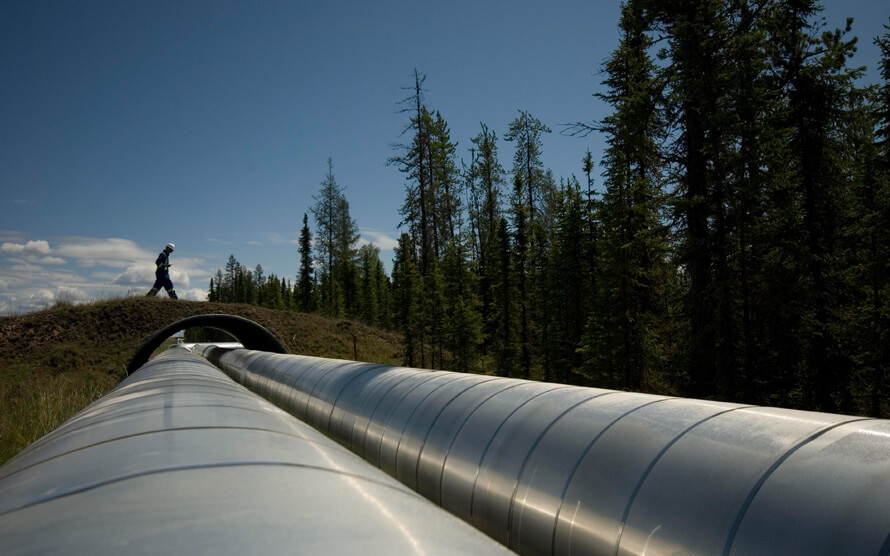MEG Energy Opposes Proposed Enbridge Pipeline Changes
CALGARY, Alberta (Reuters) - Oil sands producer MEG Energy has written to Canada's energy regulator to oppose pipeline company Enbridge Inc's plan to introduce long-term fixed volume contracts on its Mainline system.
MEG's open letter to the National Energy Board regulator, filed on Friday, makes it the largest producer so far to call for Enbridge to scrap its Mainline plan because of how it will affect producers' ability to ship crude to market.
The 2.85 million barrel per day Mainline is North America's largest pipeline system and a crucial conduit for Canadian producers exporting crude to the United States.
Enbridge's plan to switch from a monthly nomination system to "contract carriage" comes at a time when Canadian export pipelines are so constrained the Alberta government has imposed oil production curtailments, and has drawn fierce criticism from small producers.
"It is MEG's position that Enbridge's contract carriage proposal should be abandoned, as it is not in the overall public interest," the letter signed by MEG's CEO Derek Evans said.
Enbridge did not immediately respond to a request for comment.
The pipeline company launched a two-month open season to solicit bids for contracted space on 90% of the Mainline on Aug. 2. Under the current monthly nomination system demand to ship on the Mainline regularly exceeds capacity, forcing Enbridge to ration, or apportion, space.
MEG, which produces 90,000 bpd at its Christina Lake project in northern Alberta, is worried the changes will prevent it from meeting previous commitments to ship crude to the Gulf Coast on the Flanagan South pipeline, which the Mainline feeds.
Smaller producers are concerned large U.S. refiners like BP Plc will snap up most of the contracted capacity, leaving them scrambling to secure space on the smaller slice of the pipeline open for spot volumes.
ARC Energy Research Institute analyst Jackie Forrest said the 10% of the Mainline left open for spot shipping would likely be heavily rationed, resulting in more barrels getting stranded in Alberta each month and being sold off cheaply.
"If you shrink spot to 300,000 bpd you are going to see that space be many many times over-allocated," Forrest said. "As the level of apportionment increases, the level of (price) discount increases."
MEG said it understands other parties will write to the NEB outlining concerns with the Enbridge plan and seeking to delay the open season. Last month the Explorers and Producers Association of Canada, which represents smaller producers, wrote to the regulator about the "alarming" changes.
It is the second time in just over a year that Enbridge has tried to change the current, highly criticized system. In June 2018, it introduced plans to verify shippers’ oil supplies before allocating space but scrapped the policy after BP and others complained.
Related News
Related News

- Keystone Oil Pipeline Resumes Operations After Temporary Shutdown
- Freeport LNG Plant Runs Near Zero Consumption for Fifth Day
- Biden Administration Buys Oil for Emergency Reserve Above Target Price
- Mexico Seizes Air Liquide's Hydrogen Plant at Pemex Refinery
- Enbridge to Invest $500 Million in Pipeline Assets, Including Expansion of 850-Mile Gray Oak Pipeline





Comments